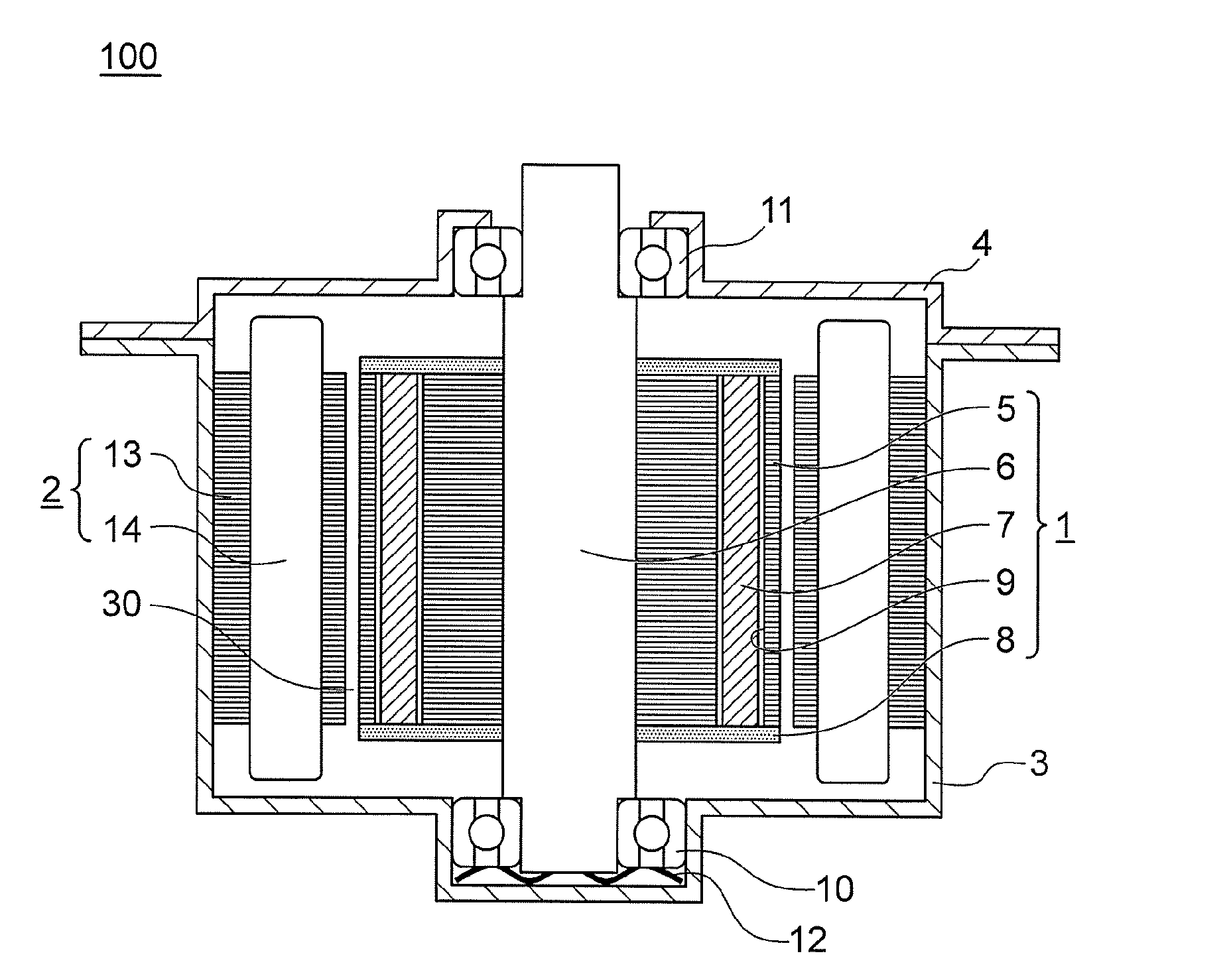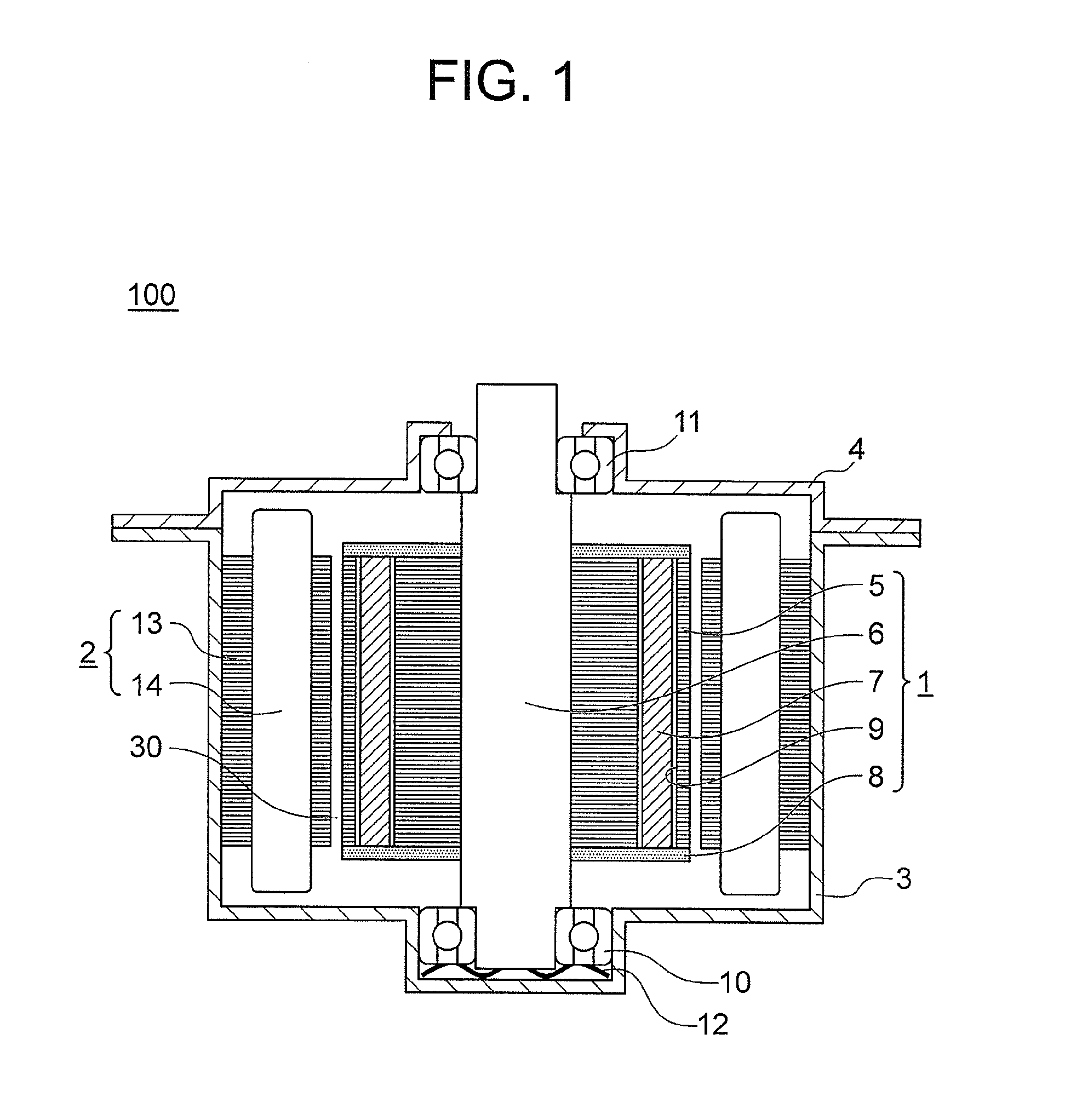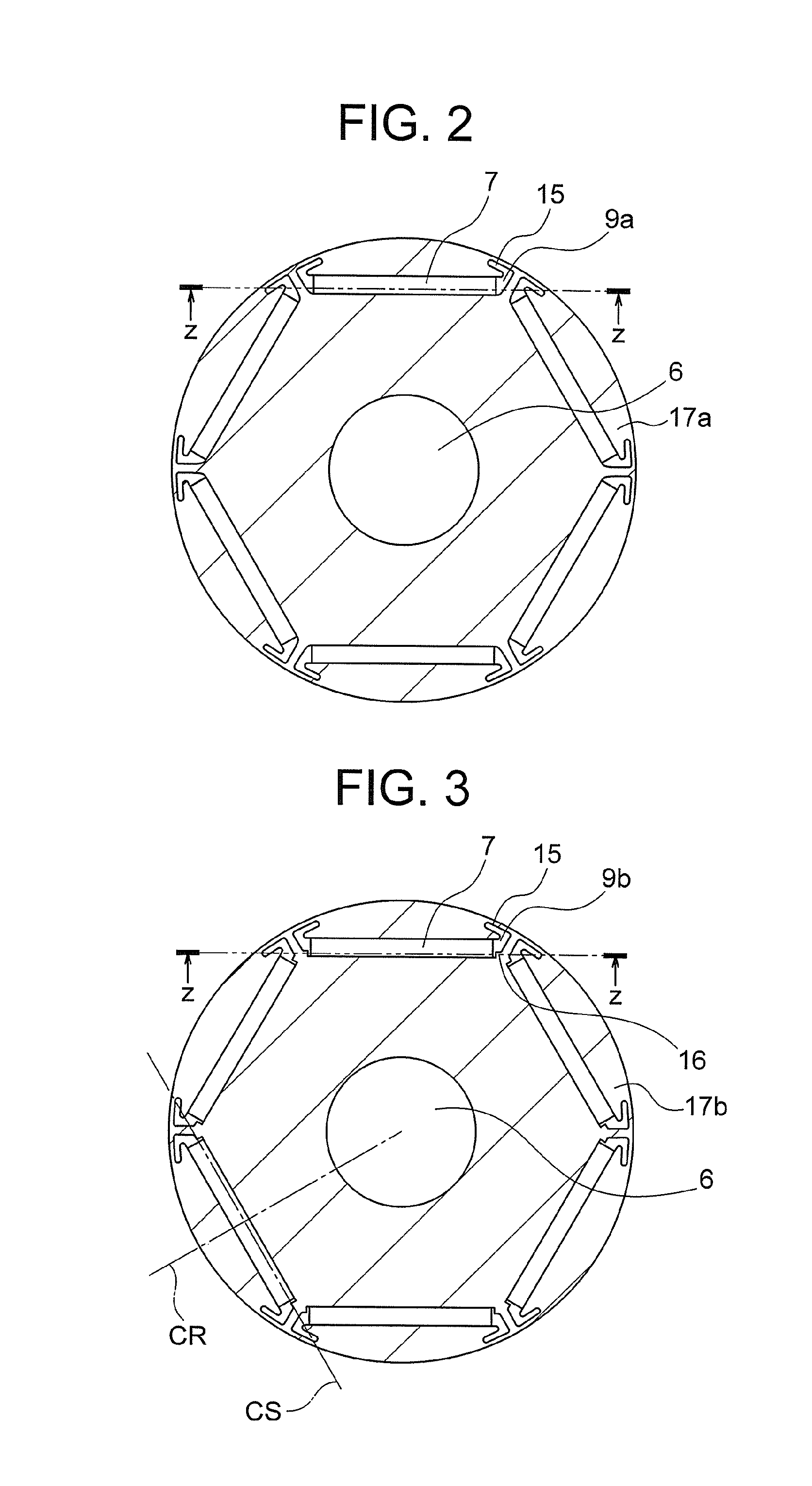An interior permanent magnet motor
a permanent magnet motor and permanent magnet technology, applied in the direction of magnetic circuit rotating parts, dynamo-electric machines, magnetic circuit shape/form/construction, etc., can solve the problems of magnet wear, cracking, magnet tend to demagnetize, etc., to reduce the movement of the magnet, improve the insertability of the magnet, and suppress the reduction of demagnetization resistance of the electric motor
- Summary
- Abstract
- Description
- Claims
- Application Information
AI Technical Summary
Benefits of technology
Problems solved by technology
Method used
Image
Examples
first embodiment
[0021]FIG. 1 is a vertical sectional view for illustrating a schematic configuration of an interior permanent magnet motor according to a first embodiment of the present invention. An interior permanent magnet motor 100 according to the first embodiment includes a rotor 1, a stator 2, a frame 3, and a bracket 4.
[0022]The rotor 1 includes a rotor core 5, a shaft 6, a plurality of permanent magnets (for example, rare-earth magnets) 7, and a pair of upper and lower end plates 8. The rotor core 5 is formed by, for example, laminating and fixing a plurality of magnetic steel sheets punched into a predetermined shape. The rotor core 5 has, for example, a substantially annular shape as viewed in a rotary shaft direction. The rotor core 5 has a plurality of magnet insertion holes 9 formed in parts of the outer periphery thereof. The plurality of magnet insertion holes 9 are formed as many as the number of poles, and are arranged at, for example, equal intervals in a circumferential directio...
second embodiment
[0054]Next, with reference to FIG. 6, a second embodiment of the present invention is described. FIG. 6 is a view for illustrating a relationship of abutment between a permanent magnet and a magnet stopper in an interior permanent magnet motor according to the second embodiment. Note that, the second embodiment is similar to the case of the above-mentioned first embodiment except for the part to be described below. As illustrated in FIG. 6, a chamfered portion 218 is formed at a lower corner of a permanent magnet 207.
[0055]Under a state in which the chamfered portion 218 is formed as described above, the relationship between the adjustment margin a in the circumferential direction, which is necessary for avoiding abutment of the lower corner of the permanent magnet 207 against the magnet stopper 16, and a dimension a1 of the chamfered portion 218 in the circumferential direction can be set as follows.
a1≧a Expression (10)
When the chamfered portion 218 is formed based on Expression (...
third embodiment
[0057]Next, with reference to FIG. 7, a third embodiment of the present invention is described. FIG. 7 is a view in the same mode as FIG. 6 according to the third embodiment. Note that, the third embodiment is similar to the case of the above-mentioned first embodiment except for the part to be described below.
[0058]In the third embodiment, magnetic steel sheets 317a and 317b having the magnet insertion holes 9 formed by punching are used. That is, in punching, an upper side of a magnet stopper 316 of the magnetic steel sheet 317b becomes the shear droop side, and a lower side of the magnet stopper 316 becomes the burr side. In the third embodiment, a shear droop-shaped portion 319 generated at this time on the upper side of the magnet stopper 316 is used. Note that, in the illustrated example, a case where the magnet insertion holes 9 are formed by punching in both of the magnetic steel sheet 317a and the magnetic steel sheet 317b is illustrated, but in the fourth embodiment, such ...
PUM
 Login to View More
Login to View More Abstract
Description
Claims
Application Information
 Login to View More
Login to View More - R&D
- Intellectual Property
- Life Sciences
- Materials
- Tech Scout
- Unparalleled Data Quality
- Higher Quality Content
- 60% Fewer Hallucinations
Browse by: Latest US Patents, China's latest patents, Technical Efficacy Thesaurus, Application Domain, Technology Topic, Popular Technical Reports.
© 2025 PatSnap. All rights reserved.Legal|Privacy policy|Modern Slavery Act Transparency Statement|Sitemap|About US| Contact US: help@patsnap.com



